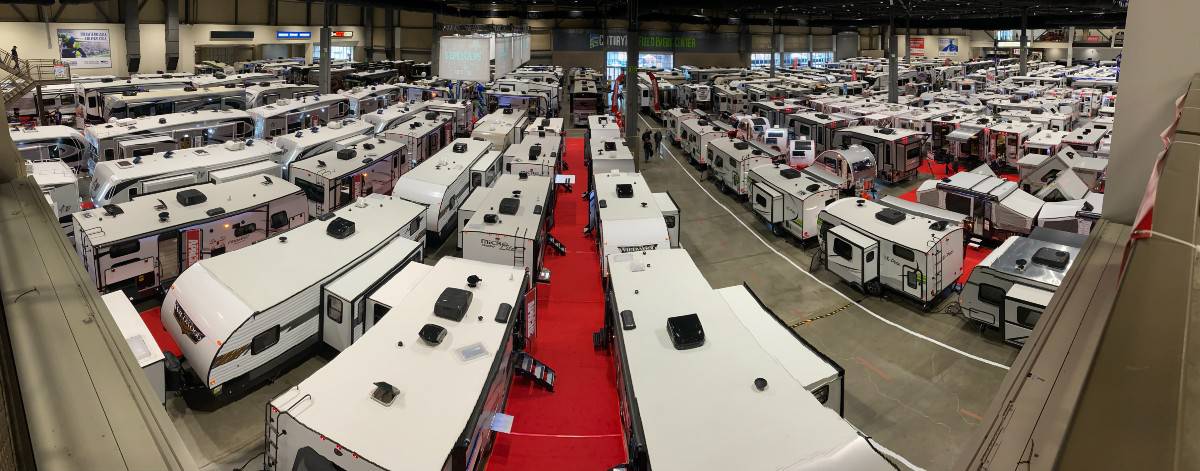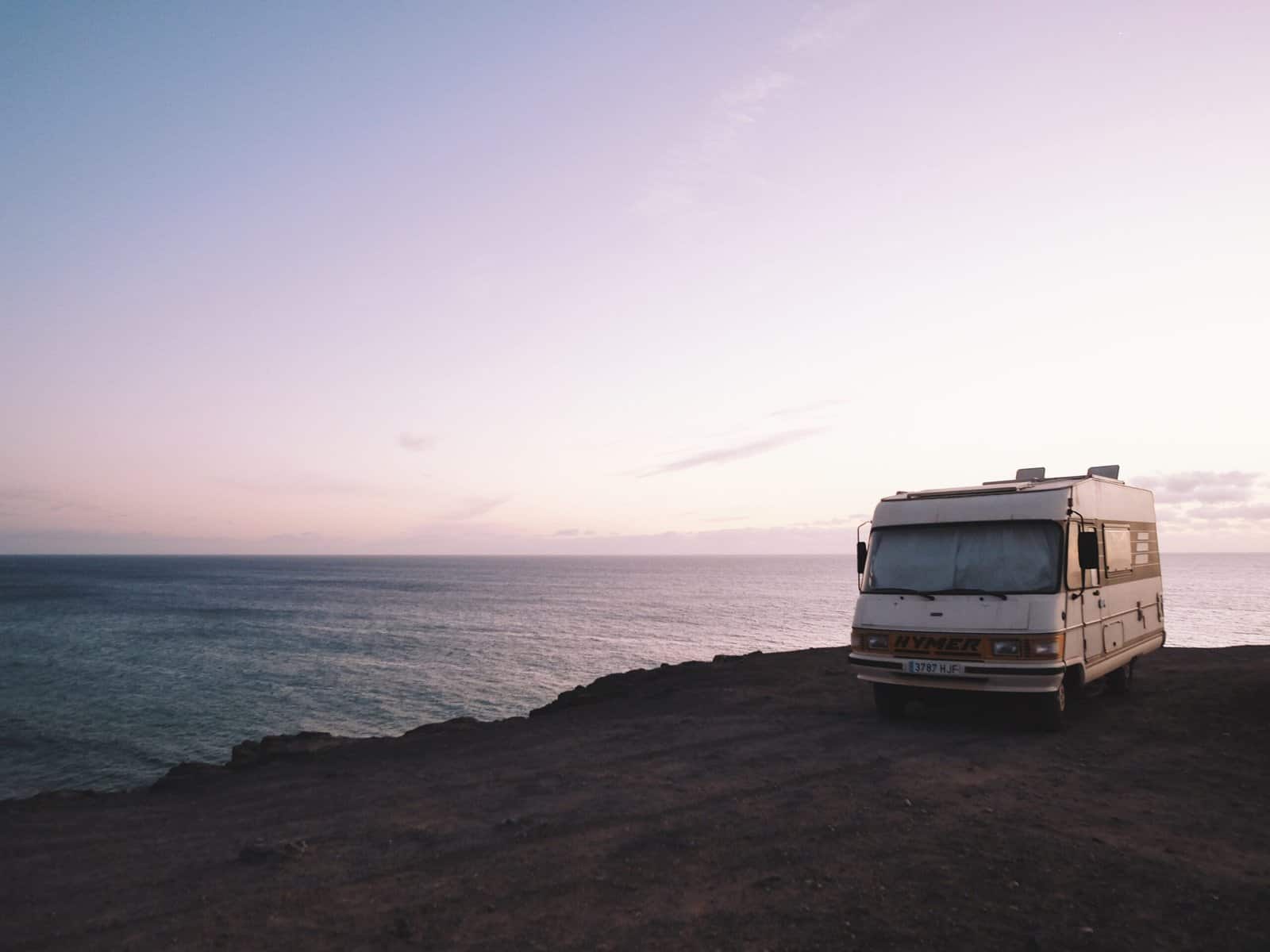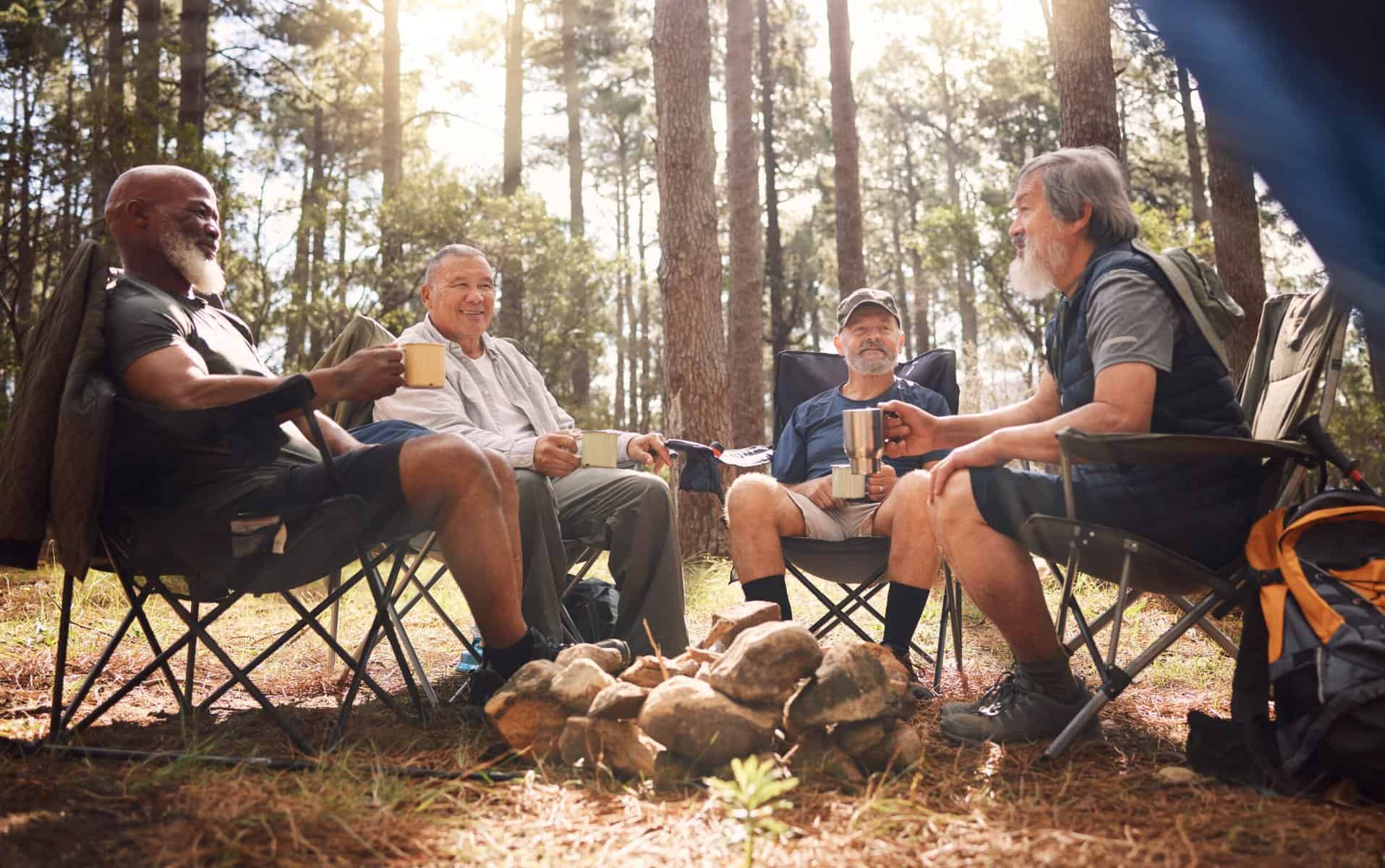Campground overcrowding is a big issue today. You might think that RV lot ownership is a good solution to that problem. After all, buying a resort lot or campsite means that you always have a spot when you can’t get a reservation at your favorite destination.
But is buying into an RV community a good idea? What’s the real cost of an RV lot now, and in the future? Let’s take a look at the pros and cons of RV lot ownership.
Is Buying an RV Lot the Answer to Campground Overcrowding?
More people are RVing than ever before. According to the RV Industry Association, about 72 million people planned to RV in 2022. That’s an increase of 11 million RVers from 2021. All of them are searching campground reviews to find great places to camp for a night, a week, or longer.
Unfortunately the number of campgrounds in the U.S. is not keeping up with demand. Right now, Americans only have 13,000 privately owned RV parks and over 1,600 state parks for RVs. And if you’ve tried getting into any great campgrounds this summer, you’ve already felt the impact of more RVers on the road. Reservations are often mandatory in popular national park destinations and other tourist destinations like California. Without reservations, you could end up boondocking at Walmart for your vacation.
But is buying an RV lot the answer to campground overcrowding? Does it pay off to invest in an RV campsite so you always have a place to go in your RV? This summer I asked myself those questions. I debated the pros and cons of lot ownership at a popular co-op RV park in Oregon.
The Pros and Cons of RV Lot Ownership
Buying an RV lot always gives you a place to go when you want to get away in your RV. But it also means that you have a new responsibility, similar to buying a vacation home. If you’re in the market to buy an RV lot, here’s what you need to know.
What is a Deeded RV Lot?
A deeded RV lot is a small piece of real estate you can own. It sits inside of an RV park or campground, hopefully in a destination you enjoy. If you own the deed to the campsite lot, you are the property owner. As property owner, you are responsible for property taxes, utilities, and any Homeowner Association (HOA) fees for things like septic and road upkeep.
Deeded RV Lots are Not the Same as Buying a Mobile Home in a Park
Buying a mobile home inside a park often costs less than buying a deeded RV lot. But it’s not the same as buying an RV lot. If you buy a mobile home or RV that sits inside of an RV park, you usually only purchase that structure. You do not own the land under your wheels. You are an RV park renter.
Mobile home ownership requires you to pay RV park rent to the true property owner, your landlord. If you are a mobile home owner inside a park, you usually won’t have a say in annual rent increases (which are currently skyrocketing around the U.S.).
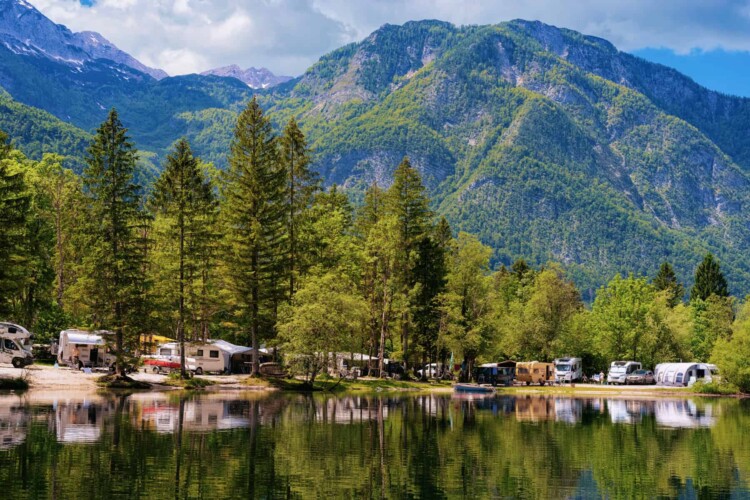
Three Great Reasons to Buy an RV Lot (the pros of RV lot ownership)
At first glance, buying an RV lot feels more attractive than buying a mobile home in an RV park. And putting that money into a campsite does come with great perks such as:
You have an affordable campsite that’s 100% yours
When you buy a campsite, campsite overcrowding becomes a non-issue. You decide when you camp and how long you stay there. Forget reservations, you can go RVing to your spot whenever you want. And since you own the land, you can say goodbye to camping fees too.
RV lots can build equity
Since RV lot owners pay for the land itself, they can build equity on that real estate if it’s in a good location with high resale values. The park association must have good rules to ensure that happens. Mobile home owners in RV parks don’t have that opportunity to increase their investment value.
You can enjoy resort-style amenities
Lot owners in great deeded RV lot communities often get to enjoy resort-style amenities like off-roading, hunting, and fishing on private land owned by the community. Many locations offer regular events, and use of group-owned facilities like gyms, pools, recreation halls and pickle ball courts.
But as nice as it sounds to buy an RV lot, it also comes at a cost many people don’t consider. Let’s look at some of those cons of RV lot ownership.
The Cons of RV Lot Ownership
Buying an RV lot isn’t always a great idea. For every pro of buying an RV lot, there’s a con. Just because you own your RV campsite doesn’t mean you can do or build whatever you want on top of it. In most cases, RV lot ownership means following rules that boost real estate values, and keep the community a nice place to camp. For instance:
The best RV Resorts with deeded lots have HOA regulations
To keep a park’s investment value up, RV lot ownership in desirable locations usually requires property owners to follow Homeowner Association (HOA) restrictions. Nicer RV parks with deeded lots for sale usually require RV lot owners to follow guidelines such as:
- A limit on the size of storage shed, outdoor kitchen, and “casita” outbuildings
- The height and materials for yard fencing, and even landscaping design, is also subject to HOA oversight
- Many communities require that all RVs parked on the lot are street legal and in running order. For instance, some parks insist that fifth wheel and travel trailer owners have an on-site vehicle that can tow the RV away at a moment’s notice.
- Adults-only communities often have restrictions on visiting children, and property owners’ pets.
- And many RV parks also prohibit controversial things like political signs, banners, and bumperstickers on community owners’ lots.
Even if you can live with RV lot ownership rules, there are other major considerations to think about before making the purchase.
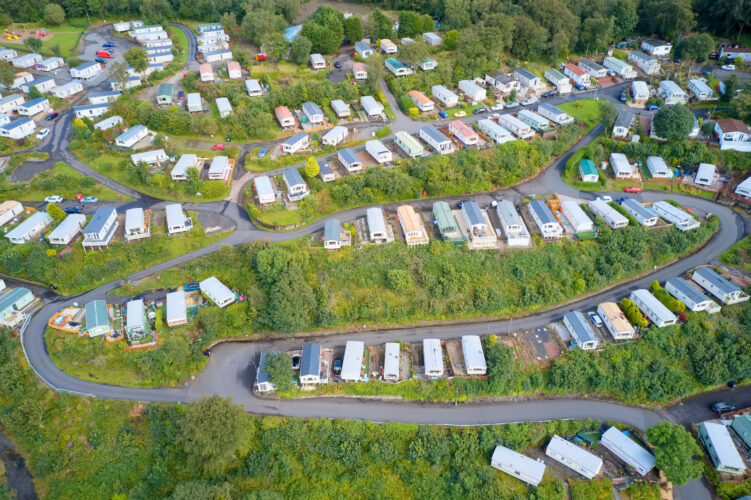
Don’t Buy an RV Lot Until You Think About This
Many people say that buying an RV lot is cheaper than renting a campsite. But that is not always the case. RV lot ownership is usually only cheaper if you don’t plan on going RVing to other destinations throughout the year. Staying put in one place always costs less. But if sticking to one place comes at the expense of missing out on other great RV destinations you want to enjoy, buying an RV lot might not be worth it for you. Also consider that RV lot ownership isn’t a one-and-done expense.
We have owned a couple of different lots in Outdoor Resorts- Indio California. They were great, but hardly great investments. They are recreational property and subject to wild price swings. Lots that once sold for $300,000 sold for less than $100,000 during the real estate crash and only recently rebounded to near the peak. And those peak priced lots had many improvements and extensive maintenance necessary to keep those high prices.
@kcdogger, iRV2 Forums member, “Thoughts on RV lot ownership in RV resorts“
HOAs can and will raise annual fees on deeded RV lots
They do this to keep the community’s real estate values up. Fee increases also pay for property maintenance, roads, and infrastructure. Just because you buy and RV lot and aren’t paying rent doesn’t mean you won’t ever be subject to the higher costs of maintaining a desirable deeded RV park lot community.
Property taxes on deeded RV lots can also increase over time.
Just like buying a home, you aren’t immune to government rules, regulations and fees for RV lot ownership. There’s just no getting away from the costs of owning a chunk of real estate.
With these costs in mind, you might not learn until it’s too late that RV lot ownership expenses are actually higher than paying campground rent.
Buying RV lot is not usually as great of an investment as buying a traditional sticks-and-bricks house.
Sure, an RV lot is cheaper on the front end. And for many people this is their only opportunity for affordable housing. For them, RV lot ownership might be a good idea. But if you’re buying a deeded RV lot because you think it’s a good investment, don’t do it unless you have money to play with (and possibly lose when trying to resell your deeded RV lot). You just won’t gain as much equity on that “free campsite” as you would on a sticks-and-bricks home.
If you still want to buy an RV lot:
Ask yourself questions like:
- Can you rent your lot to someone else if you decide you don’t want to visit one season?
- How easy is it to sell your lot if you decide you don’t like it after a few years?
Do those lots appreciate in value? Look at sales of other lots to see how well their owners fared.
You should make sure this isn’t on par with “investing” in a timeshare where you can’t recoup your initial cost and the fees skyrocket leaving you with something you can’t sell and have no way to discontinue paying escalating fees.
@Donskiman, iRV2 Forums member, “Thoughts on RV lot ownership in RV resorts“
Don’t buy until you review the HOA rules carefully to ensure you are willing to follow them. See if you can spend time inside the park before buying. This will give you a feel for the community. Each RV park has a different vibe, and it’s important for any RV lot buyer to find the ideal park that suits their personality, values, and preferred ways to enjoy nature.
In the end, I opted out of buying an RV lot in Oregon. There’s still a lot of great RV campsites out there calling my name, and I don’t want the costs of maintaining an RV lot to keep me from experiencing them all.
How about you? Did you buy an RV lot? What happened? Comment below, we’d love to know about your RV lot ownership experience.

